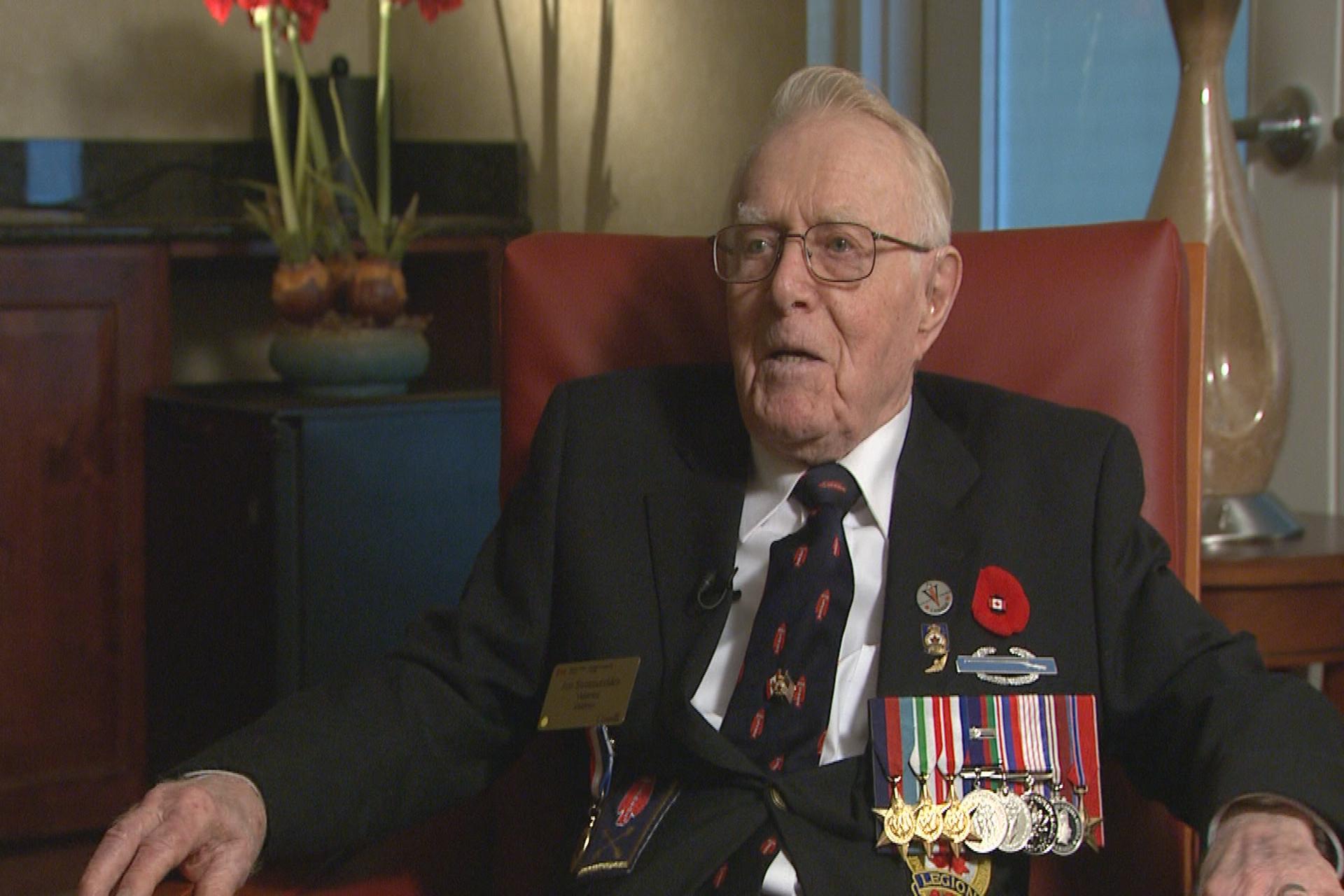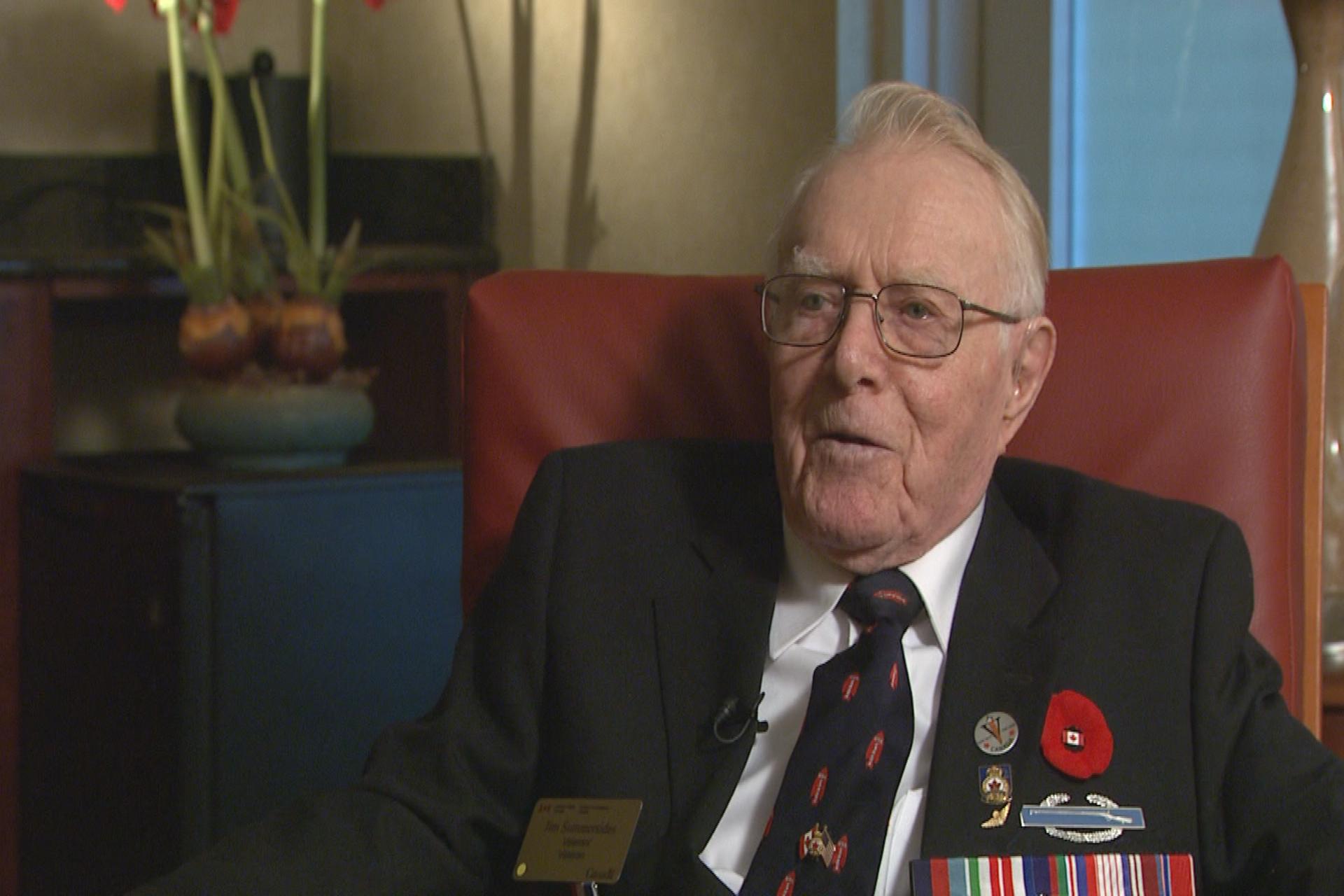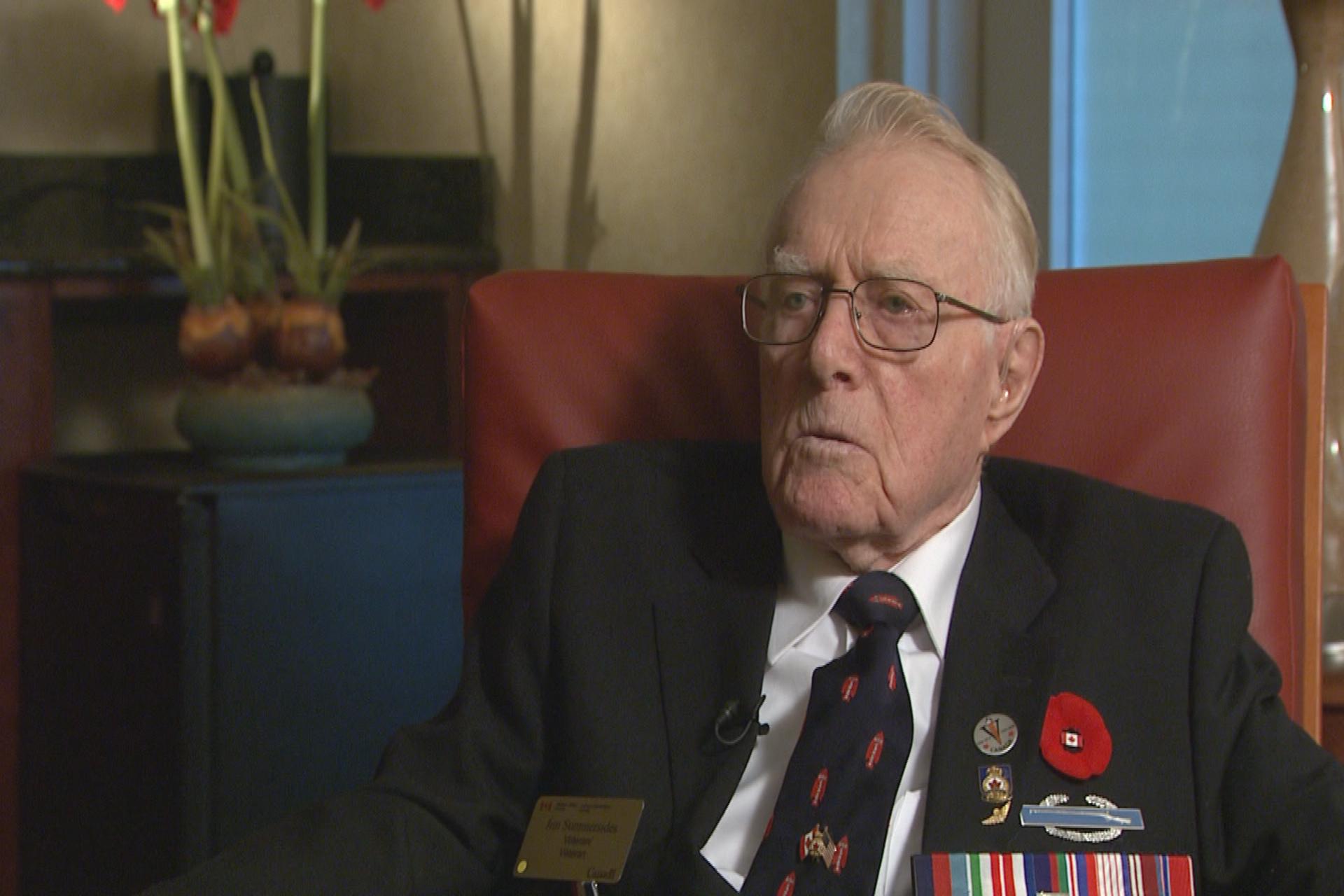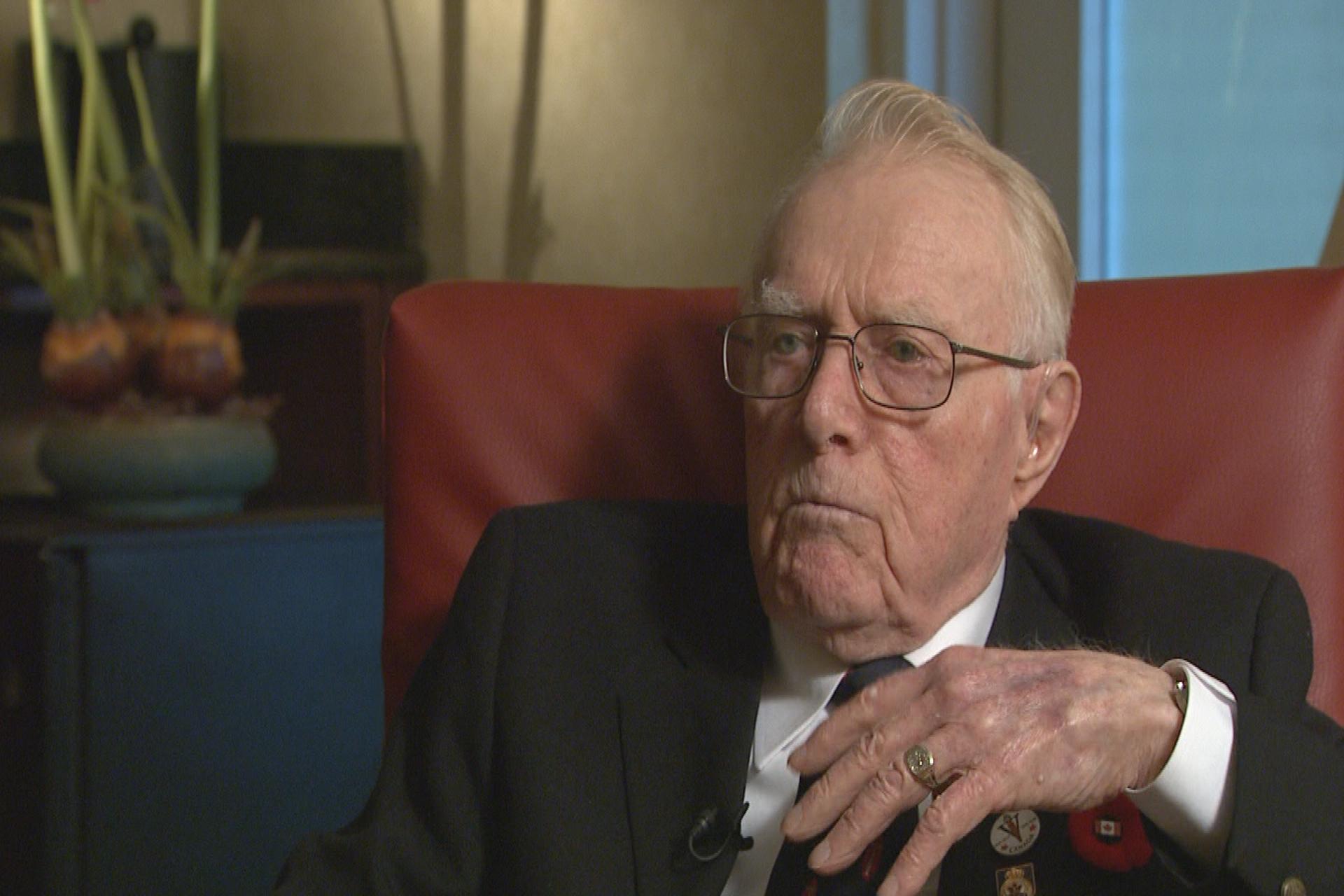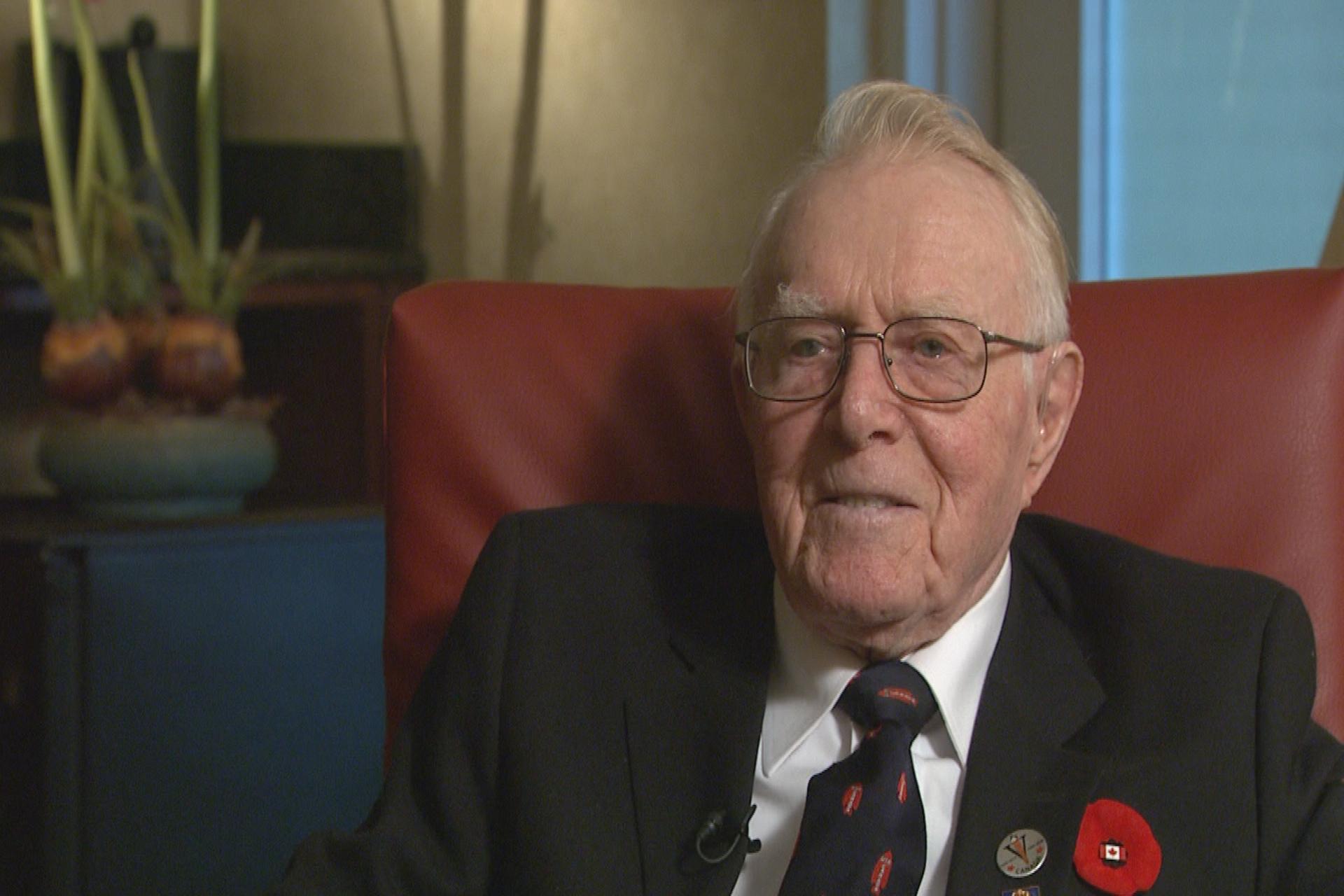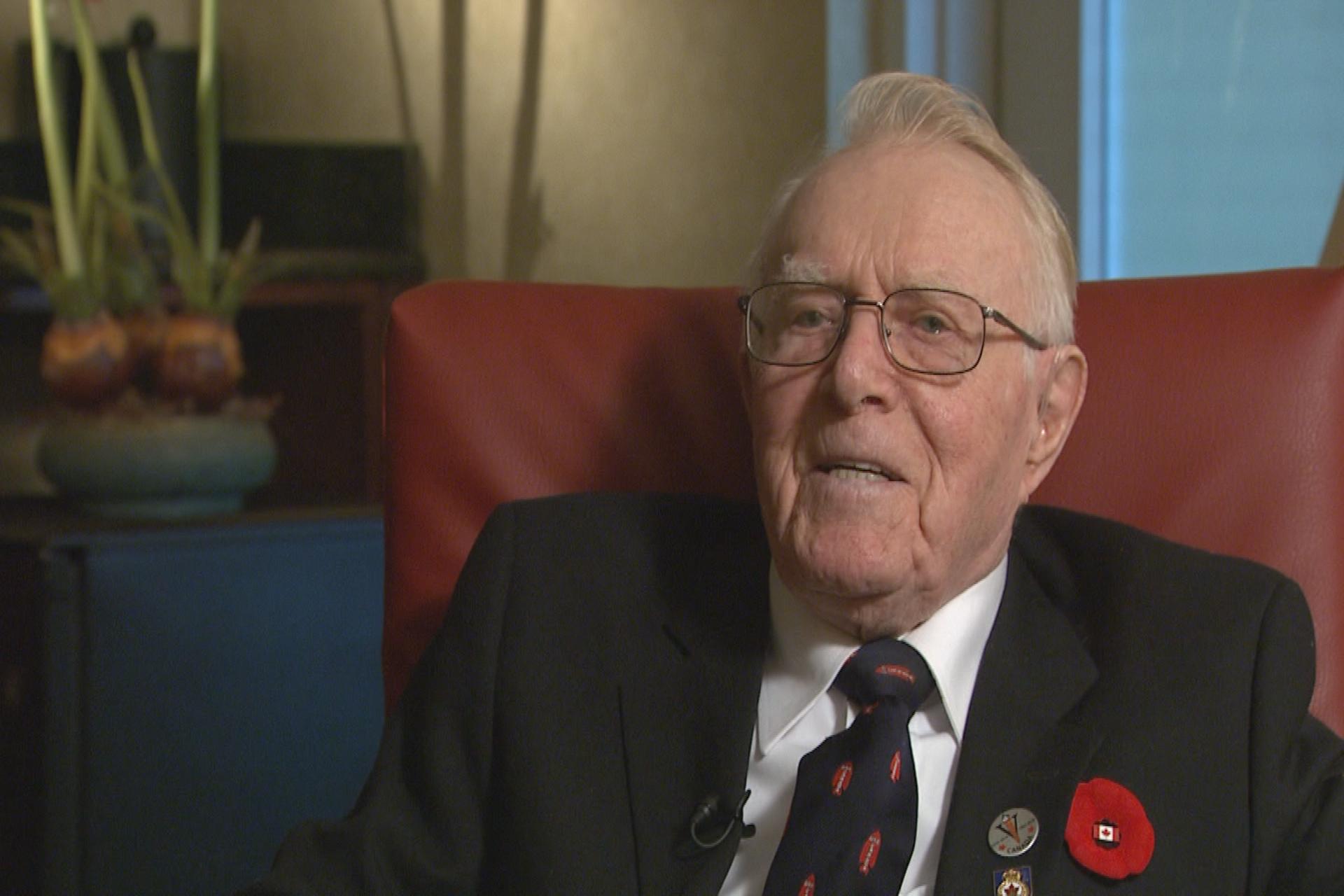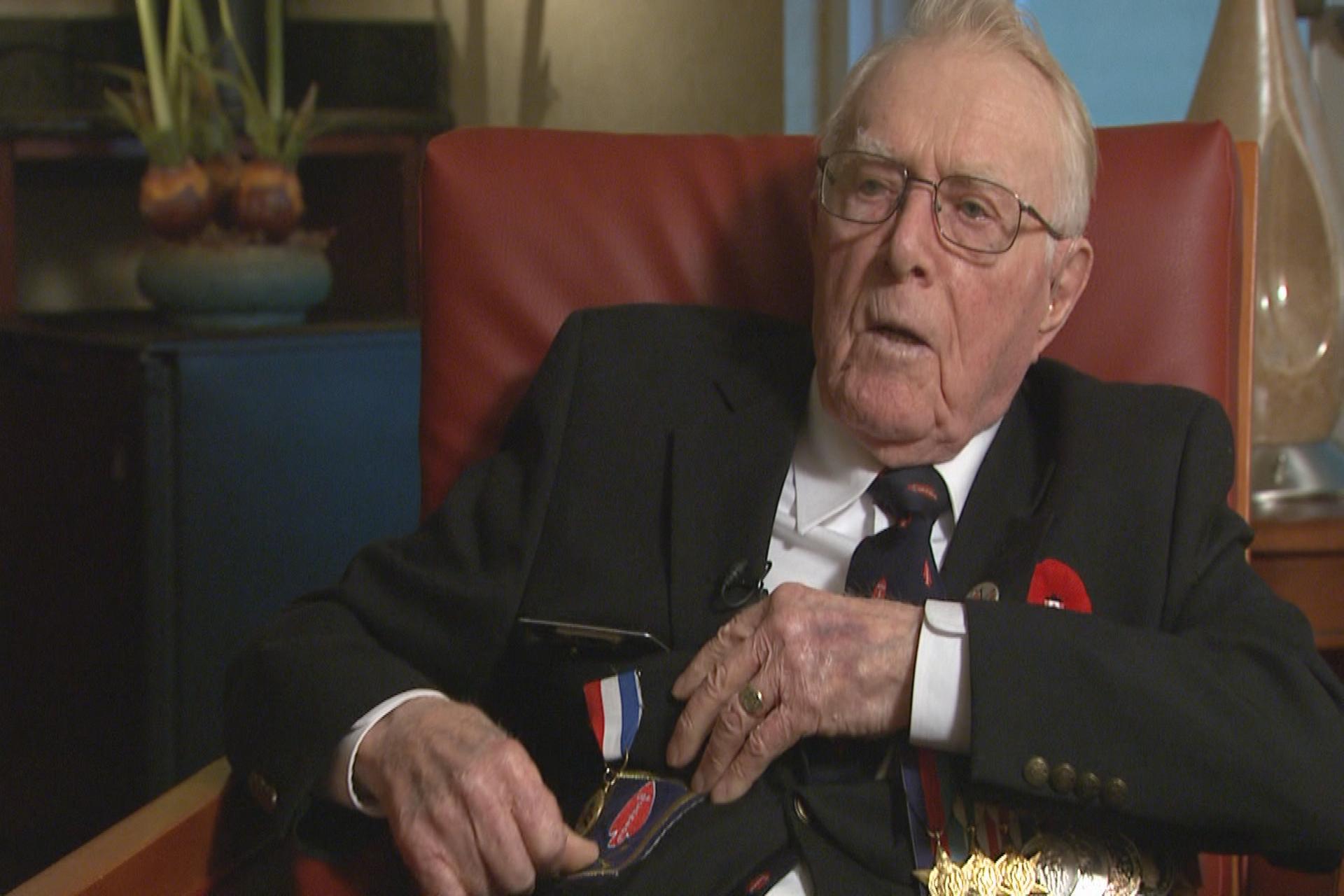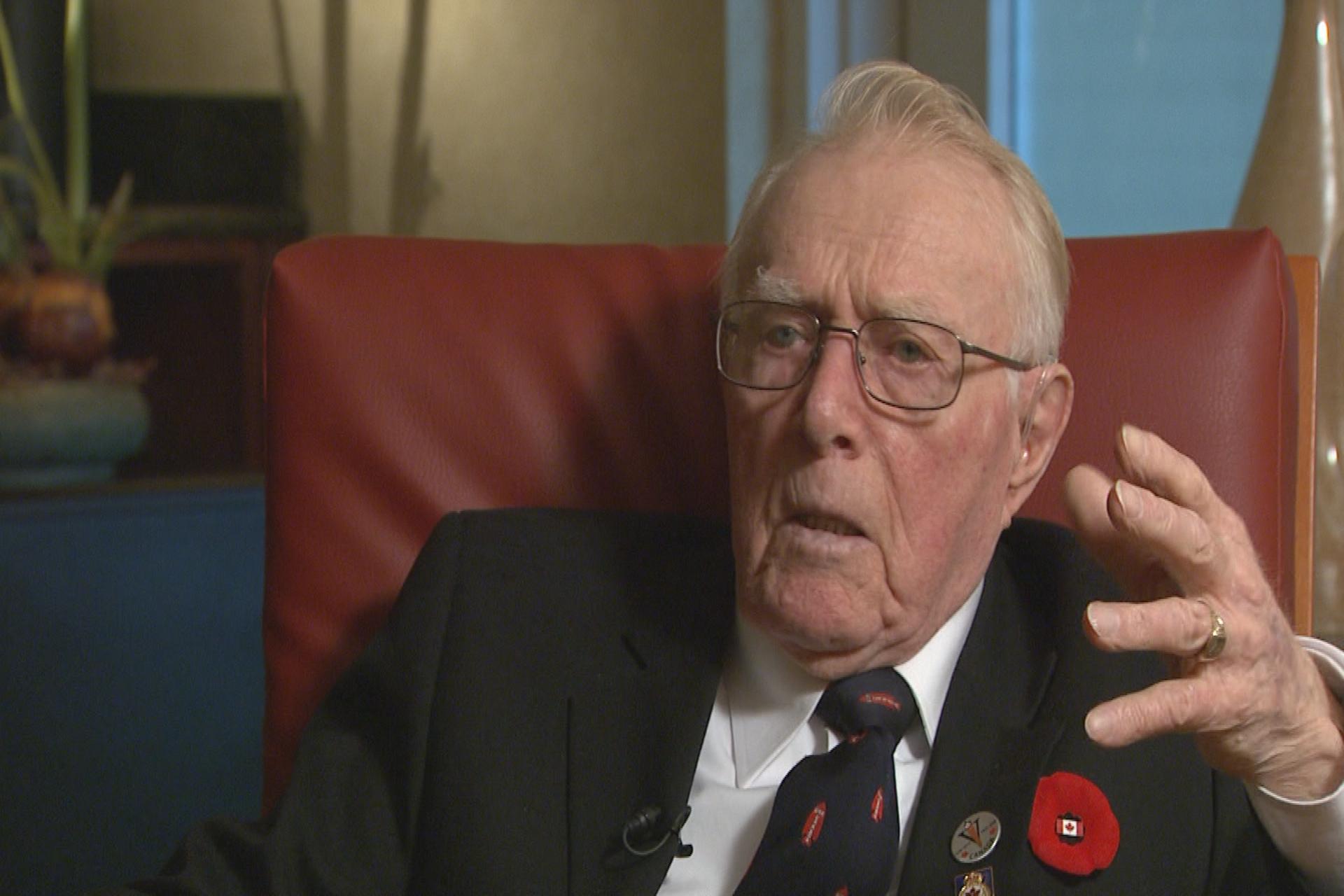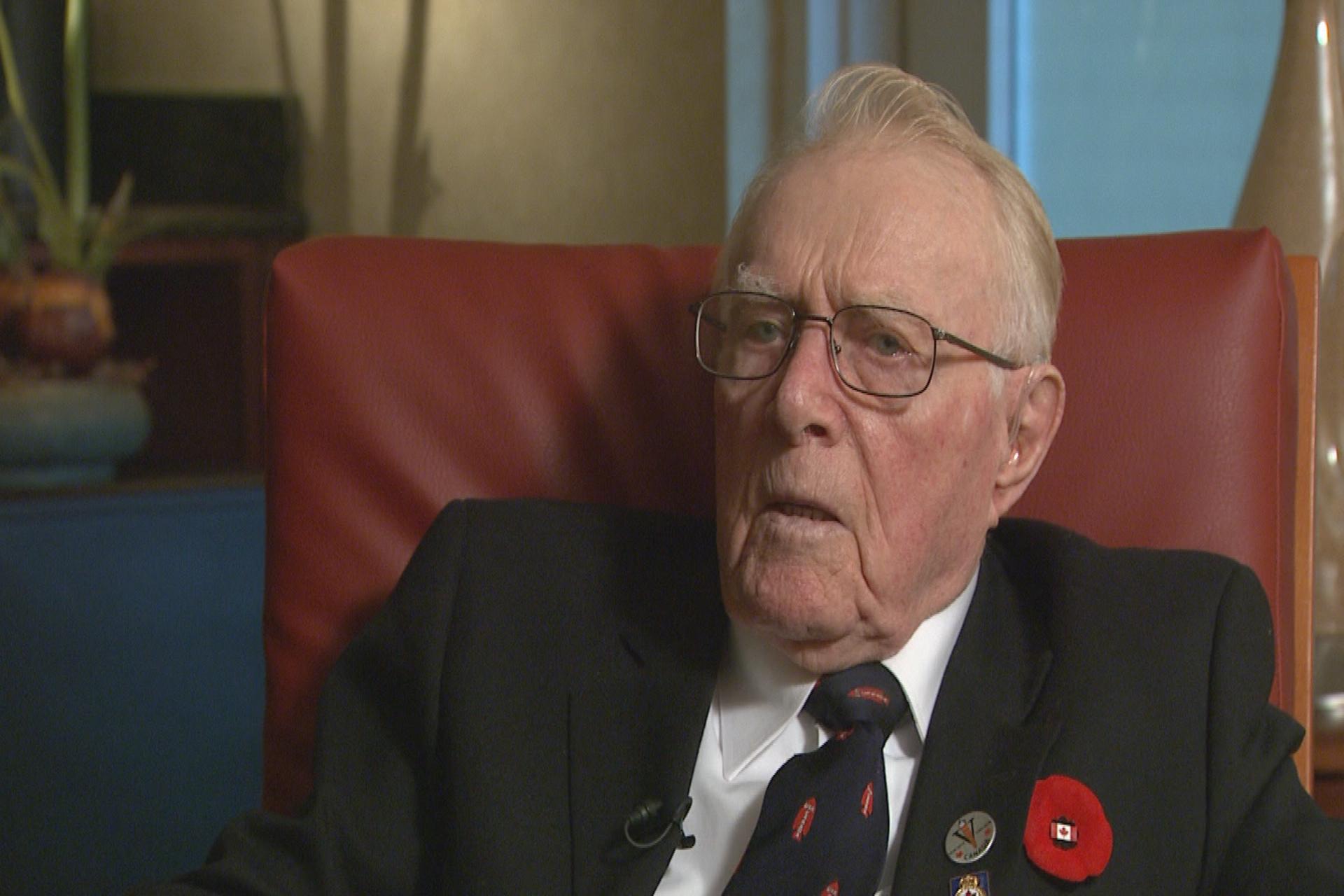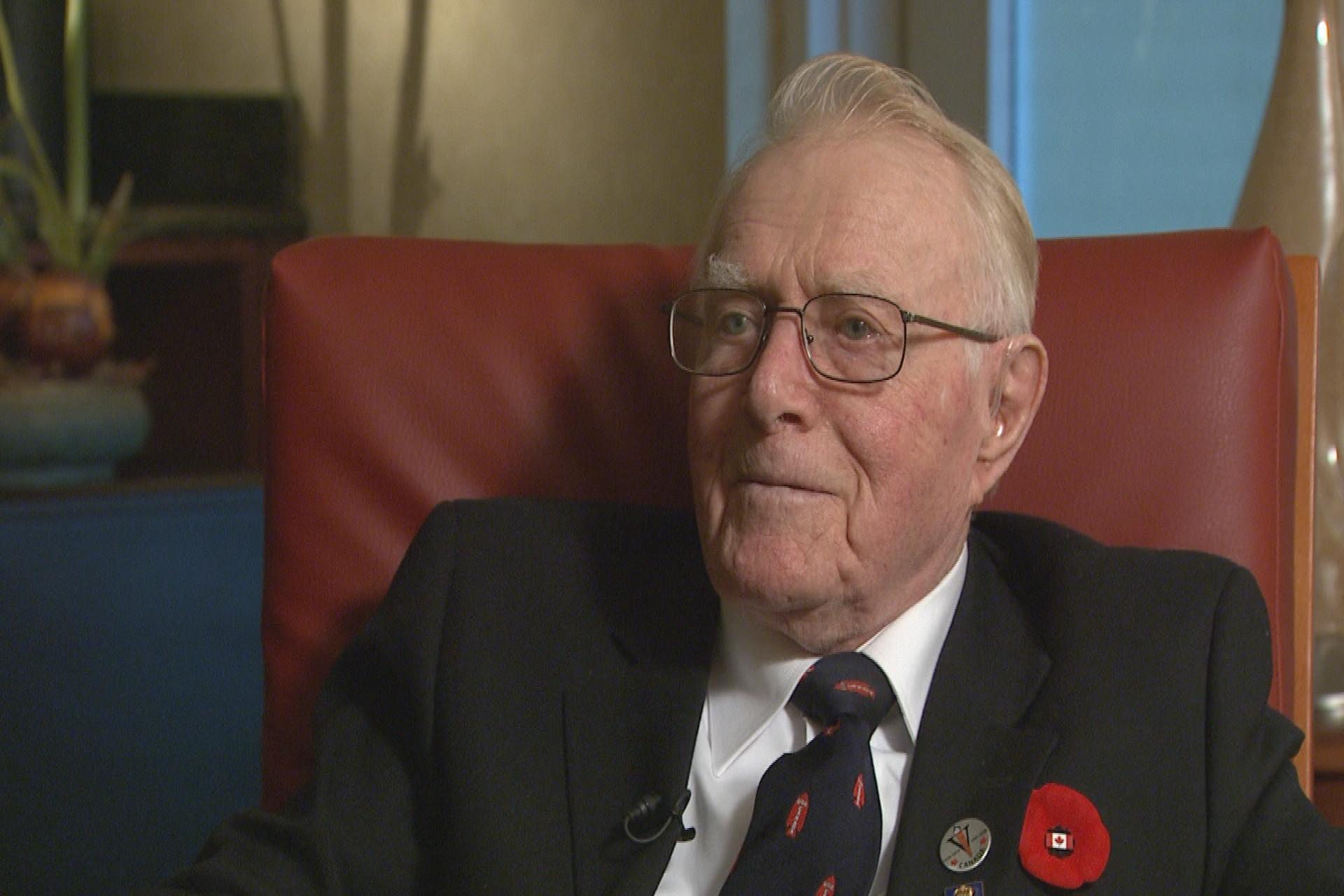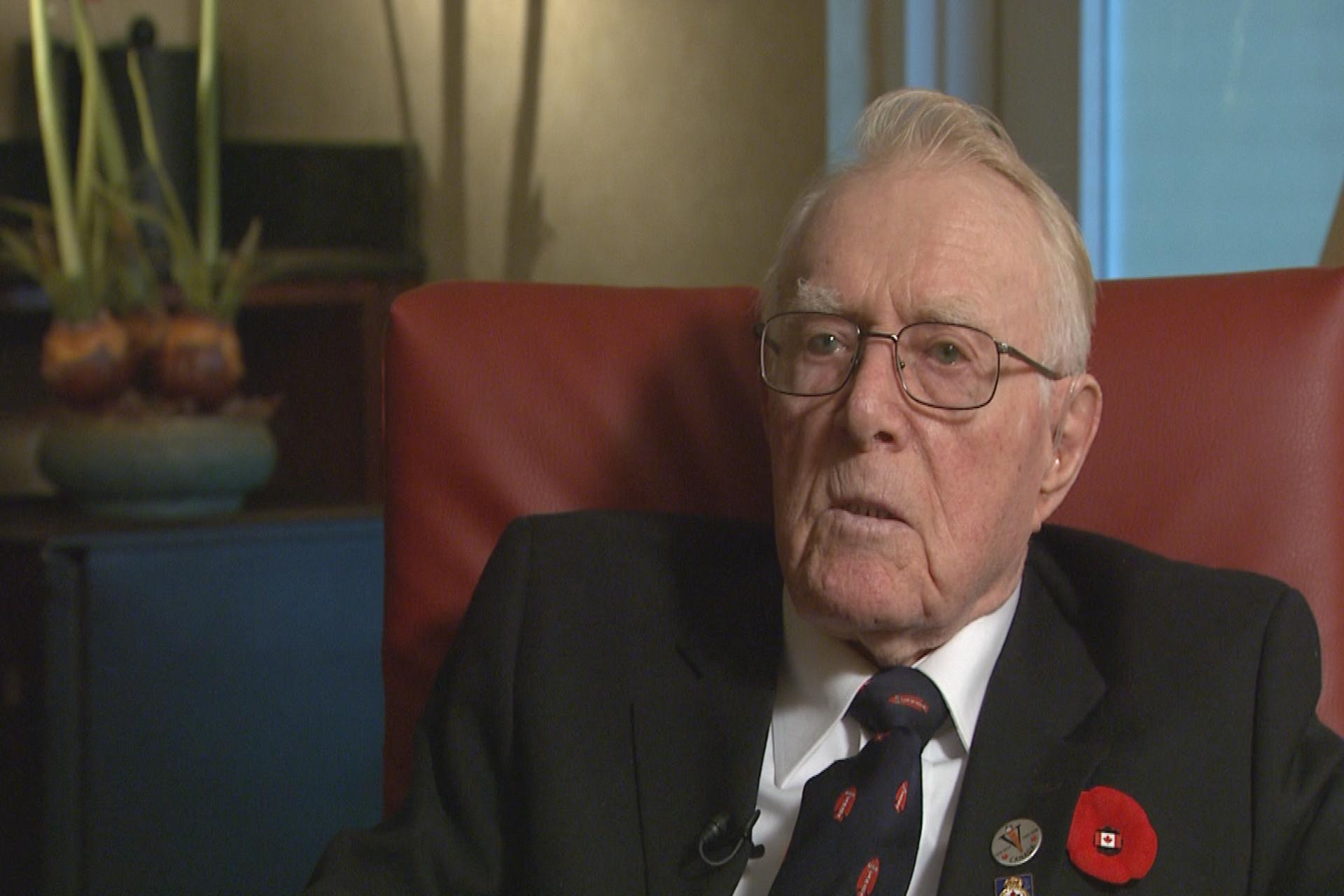Training with Little to Eat
Heroes Remember
Training with Little to Eat
Transcript
Description
Mr. Summersides describes the environment within the training camp and the limited amount of rations provided.
Jim Summersides
Mr. Jim Summersides was born in Welland, Ontario, a town where he has lived all his life. As a young man, he recalls that peer pressure played a role in his joining the army. After enrolling, Mr. Summersides volunteered for the First Special Service Force, a unique joint Canadian- American effort that snuck behind German artillery lines creating havoc for the enemy. Mr. Summersides, along with fellow Canadian comrades, was awarded the Congressional Gold Medal of Honor from the American Congress for his rare and profound contribution to the war effort. After the force broke up, he joined the 48th Highlanders and finished the war with that regiment. Mr. Summersides is very proud of his service during the Second World War and has had the pleasure of returning to Holland as part of the Canadian delegation for anniversary events.
Meta Data
- Medium:
- Video
- Owner:
- Veterans Affairs Canada
- Recorded:
- May 30, 2015
- Duration:
- 2:48
- Person Interviewed:
- Jim Summersides
- War, Conflict or Mission:
- Second World War
- Location/Theatre:
- Italy
- Battle/Campaign:
- Liberation of Holland
- Branch:
- Army
- Units/Ship:
- 1st Special Service Force
- Rank:
- Private
- Occupation:
- Infantry
Related Videos
- Date modified:



